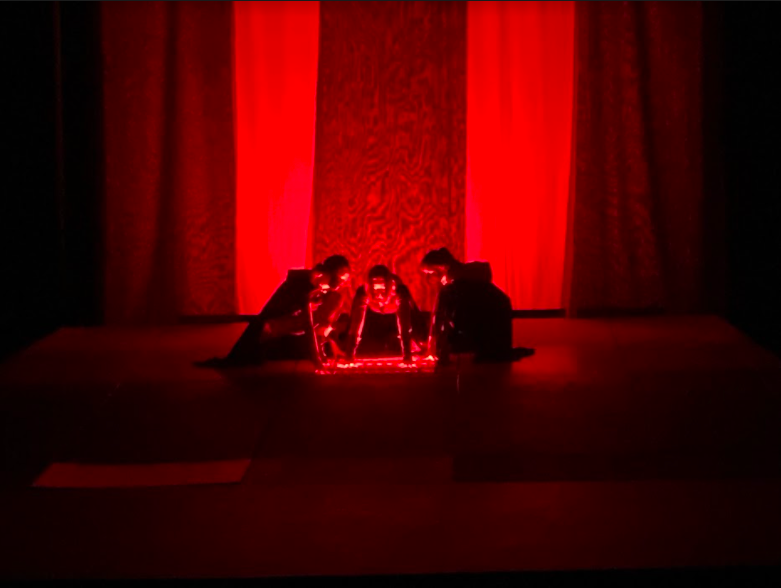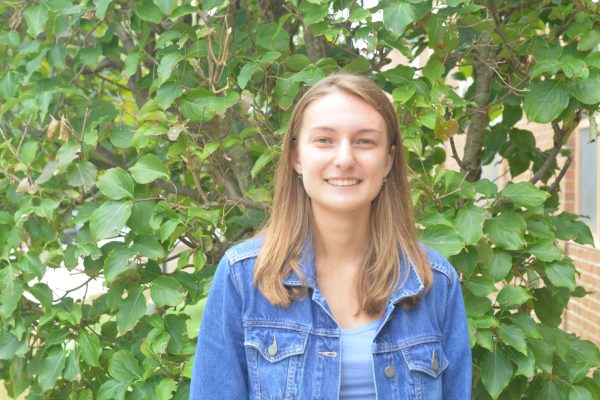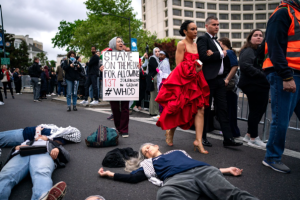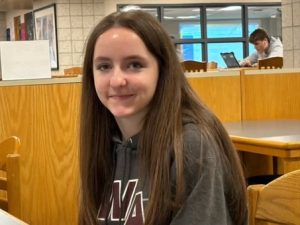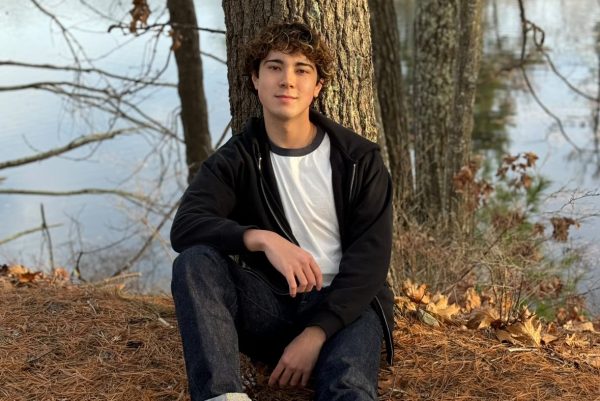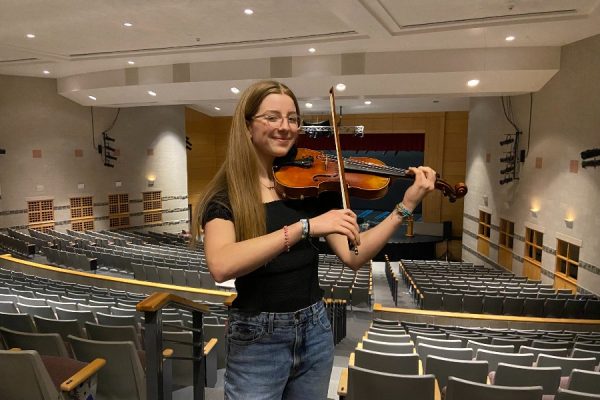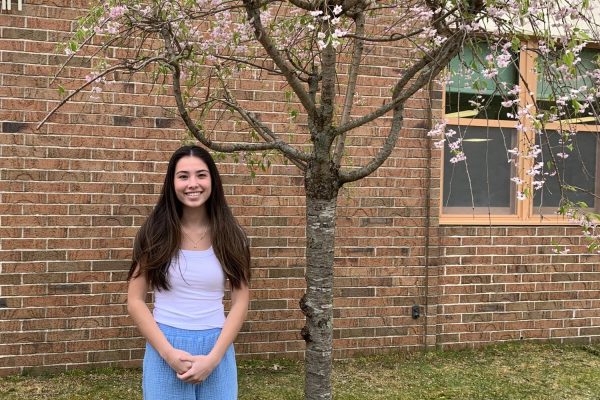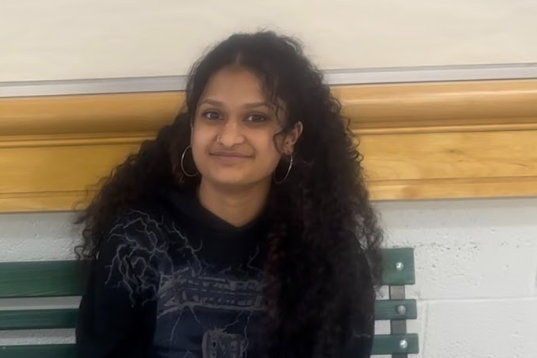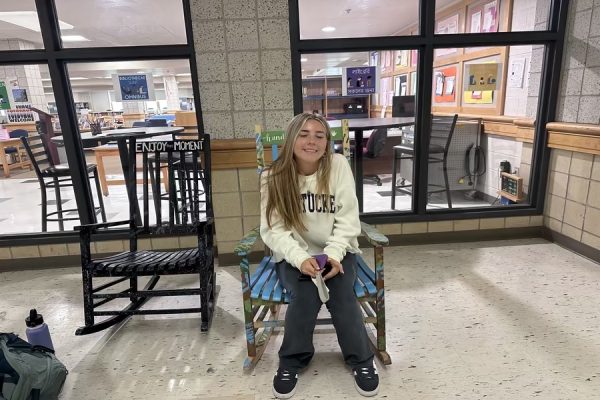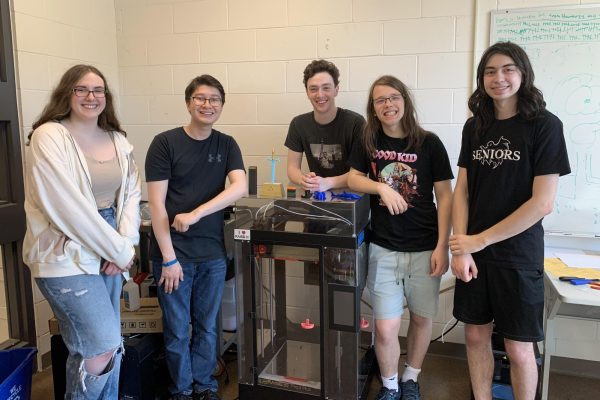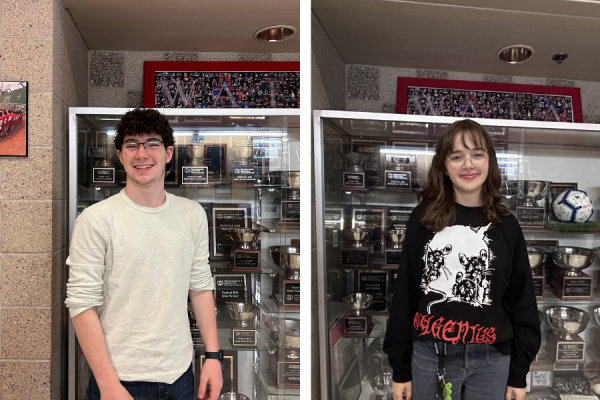WATA’s ‘Weird Sisters & the Tragedy of Macbeth’ makes it to METG regionals
Lauren Trethaway, Gaby Saunders, and Olivia Olszowy who play the three witches during rehearsals
March 30, 2022
The Westford Academy Theater Arts (WATA) program is notorious for its visually striking and emotional performances. Over the years, WATA has accumulated eight Massachusetts Educational Theater Guild (METG) state final awards, all of which have elevated its reputation as one of the most prestigious theater programs in the state. This year, with another METG award at stake, WATA students are performing one of the most difficult plays to interpret and produce, especially at a high school level: “Macbeth” by William Shakespeare.
WATA’s version of the play, Weird Sisters & the Tragedy of Macbeth, has already qualified for the regional round of the competition after being performed in the preliminary round on Saturday, March 19 at the Framingham High School. WATA was one of the three winners at this site, alongside Saugus High School and Framingham High School. In addition to that, thirty-eight other schools have been chosen from the various other sites. WATA also took home an impressive number of Individual All-Star awards, including two Best Actor Awards for senior Alex Ross and junior Lauren Trethaway’s performances, one Best Set Award, one Best Lighting Award and a Best Stage Management Award.
What makes these accomplishments even more impressive is the fact that the Playlab Honors students, who make up most of the cast and crew, have never worked on Shakespeare in theater before. WATA Director and Theater Arts teacher Maggie Sulka purposefully chose this project in order to free her students of their previous reservations and challenge them with something entirely new.
“The students think that [Shakespeare] is a different type of English or that the poetry is too affluent or strict [but] I actually think that when you follow the structure of it there is a lot of freedom,” Sulka said. “When picking Macbeth I was thinking about the actors I had in the room but also how I was going to push them.”
Before they even began the production process, the students spent a whole month analyzing the original script in order to gain a better understanding of the language and characters, according to Assistant Director and senior Avery Piazza.
“Diction and language were much bigger in this play than any other play that we’ve done in the past. We spent a lot of time dissecting the language and fully understanding it first to be able to authentically portray it,” Piazza said.
The students also felt compelled to explore different aspects of the play that were not originally intended to be the focal point. Specifically, they drew inspiration from the feminine aura depicted through the three witches and Lady Macbeth.
“In our adaptation, we bring the witches to the forefront and really give them not just the nudge that pushes Macbeth into madness but really puts the power back into their hands,” Sulka said.
To portray that theme, WATA had to cut and rearrange scenes that pulled the focus away from the witches. They also decided to merge the three witches with Lady Macbeth, Fleance and Malcolm so that they manipulate the men undercover, leading them on to their own destruction in order to gain power for themselves.
“[Lady Macbeth] needs to use her words, her femininity, and her intelligence to get what she wants. I think that idea is strengthened by our adaptation of the show,” Trethaway said, who plays Lady Macbeth.
A prominent scene in the play is the combat sequence between Alex Ross, who plays Macbeth, and senior Dylan O’Toole, who plays Macduff. Both actors found working with fight choreographer Cassie Chapados and each other very enjoyable.
“I’ve never done a stage combat sequence like that before because it is quite long and complicated, but it was super fulfilling to get right […]. [And] with Dylan there too, as someone who is one of my best friends we [were able] to really get into it and have a good time,” Alex Ross said.
To emphasize the characters, especially Macbeth, spiraling out of control, the set designers built a rake stage so that the actors could always be on their toes, ready to “literally be spiraling” down the slope, according to Piazza and Alex Ross.
“It’s a pretty slanted stage, so I think a big part of the directing was playing with levels and getting the actors comfortable in that space […],” Piazza said.
To build the rake, the set designers used Desmos as well as Geogebra for the math and reused wood from past years. Setting up the stage under the time limit set by METG and in different settings also proved difficult, explained Set Manipulation Chief and senior Michael Ross.
“Securing the set together with clamps on the underside, while also setting up lights beneath and behind the rake, poses a little more difficult than might initially meet the eye of an audience member,” Michael Ross said.
Another original concept in Weird Sisters & the Tragedy of Macbeth was the stage lighting design, given how in Shakespeare’s time, the play was typically performed in daylight. While designing the lights, students took the time to watch the WATA actors perform each scene in order to gain a feel for what is going on, explained Technical Director and senior Andrew Green.
“[…] We use [red], of course, for our murders […]. But we also have some very stunning cues, like during the night scenes we have a very nice, blue wash. And then there was the lightning, which was one of the best things we did with these moving lights with strobe effect on them,” Green said.
According to Green, the judges were really impressed with the way the technical elements all meshed together. The sound design was one of those elements that worked simultaneously with the lighting, heightening the intensity and eeriness of the play.
“It’s such a dark show, and we have around fifty sound cues including fades and overlaps. It’s very busy during the performance. Most shows don’t demand such an atmosphere, but this one does,” Sound Designer and junior Chrissy Richert said.
Indeed, Weird Sisters & the Tragedy of Macbeth is unlike any other play the cast and crew have ever done. Though the production process was long and performing on a different stage stressful, WATA is proud of how far they have gotten and look forward to competing in the regional round on April 2 at Leominster High School.
“Yes, [I think we will win]. But I think winning is relative. Winning for me is these kids, these artists, responding and speaking their truths in their piece. We are our biggest critics and we hold ourselves to a very particular standard and we know when we hit it,” Sulka said.

